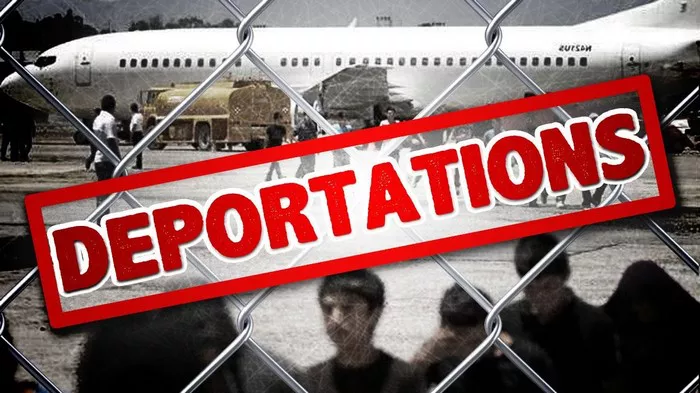Deportation, formally known as removal, is a legal process through which a non-citizen is ordered to leave a country by government authorities. This significant action can have profound impacts on individuals, families, and communities. Understanding the reasons behind deportation, the legal grounds for it, and the consequences involved is crucial in navigating immigration laws globally.
What is Deportation?
Deportation is the legal process of expelling a non-citizen from a country, typically due to violations of immigration laws or other serious offenses. It is a form of administrative action carried out by immigration authorities or courts, depending on the jurisdiction and specific circumstances. Deportation orders are issued after a formal process that often includes hearings and appeals.
Legal Grounds for Deportation
Deportation can occur for various reasons, all of which are typically grounded in violations of immigration laws or criminal activities. The following are some common legal grounds for deportation:
1. Immigration Violations:
Unauthorized Entry: Individuals who enter a country without proper documentation or legal permission are subject to deportation if discovered.
Overstaying Visas: Failure to adhere to visa expiration dates or conditions can lead to deportation proceedings.
Violation of Immigration Laws: Breaching specific immigration regulations, such as working without authorization or engaging in activities not permitted by a visa type, can result in deportation.
2. Criminal Convictions:
Serious Crimes: Commission of serious criminal offenses, such as felonies or violent crimes, often leads to deportation, as these actions are deemed contrary to the safety and welfare of the host country’s citizens.
Drug Offenses: Convictions related to drug trafficking or serious drug offenses are frequently grounds for deportation due to their severe nature and impact on public health and safety.
Moral Turpitude: Crimes involving moral turpitude, which are generally offenses that reflect badly on an individual’s character (e.g., fraud, theft, certain types of assault), can also lead to deportation.
3. National Security Concerns:
Terrorism: Involvement or association with terrorist organizations or activities deemed threatening to national security can result in deportation.
Espionage: Individuals engaged in espionage or activities compromising national security interests are subject to deportation.
4. Public Charge:
Financial Dependence: Inability to demonstrate financial self-sufficiency or reliance on public assistance for basic needs can be grounds for deportation, as it may indicate an inability to support oneself without becoming a burden on the host country’s resources.
5. Immigration Fraud:
False Information: Providing false or misleading information on immigration applications or during interviews can lead to deportation if discovered, as it undermines the integrity of the immigration process.
Process of Deportation
The process of deportation varies by country but generally includes several key stages:
1. Arrest and Detention:
Immigration Enforcement: Upon identification of immigration violations or criminal activity, authorities may detain the individual pending deportation proceedings.
2. Notice and Hearing:
Issuance of Notice: Individuals receive formal notification of deportation proceedings and are provided an opportunity to contest the order.
Administrative Hearings: Hearings before immigration judges or administrative bodies allow individuals to present their case, challenge evidence, and argue against deportation.
3. Appeal Process:
Appeal Rights: Depending on the jurisdiction, individuals may have the right to appeal deportation orders to higher courts or specialized immigration appeal boards.
4. Removal:
Execution of Order: If deportation is upheld or not successfully appealed, authorities carry out the removal order, which involves physical expulsion from the country.
SEE ALSO: WHICH COUNTRY’S CITIZENSHIP IS EASY TO GET?
Consequences of Deportation
Deportation carries significant consequences that extend beyond the individual directly affected:
1. Family Disruption:
Separation: Deportation often leads to separation from family members, particularly if they are legal residents or citizens of the host country.
Financial Hardship: Families may face financial difficulties due to loss of income or support from the deported individual.
2. Legal Barriers:
Reentry Restrictions: Many countries impose bans on reentry for deported individuals, ranging from several years to a lifetime, depending on the circumstances of deportation.
Legal Status: Deportation can impact future immigration applications and legal status in other countries, making it challenging to obtain visas or residency permits elsewhere.
3. Social and Psychological Impact:
Stigma and Isolation: Deportation often carries social stigma and can lead to feelings of isolation and alienation within communities.
Psychological Distress: Individuals and families may experience emotional distress, trauma, and mental health issues as a result of deportation proceedings and separation.
Global Perspectives on Deportation
Deportation policies and practices vary widely across countries and regions, reflecting unique legal frameworks, political climates, and socio-economic considerations. While some nations prioritize strict enforcement and swift deportation for certain offenses, others may emphasize rehabilitation, integration, or humanitarian considerations in their immigration policies.
Humanitarian Considerations and Alternatives to Deportation
In recent years, there has been increasing debate and advocacy regarding the humanitarian impact of deportation policies. Efforts to explore alternatives to deportation, such as community-based supervision, rehabilitation programs, or temporary stays, aim to balance enforcement with humanitarian principles and mitigate the negative impacts on individuals and families.
Conclusion
Deportation is a complex legal process with profound implications for individuals, families, and communities. Understanding the legal grounds, procedural aspects, and consequences of deportation is essential for navigating immigration laws responsibly and advocating for fair and just treatment within the global context of migration. As immigration policies continue to evolve, efforts to balance enforcement with humanitarian considerations remain crucial in shaping more equitable and compassionate approaches to immigration enforcement worldwide.


